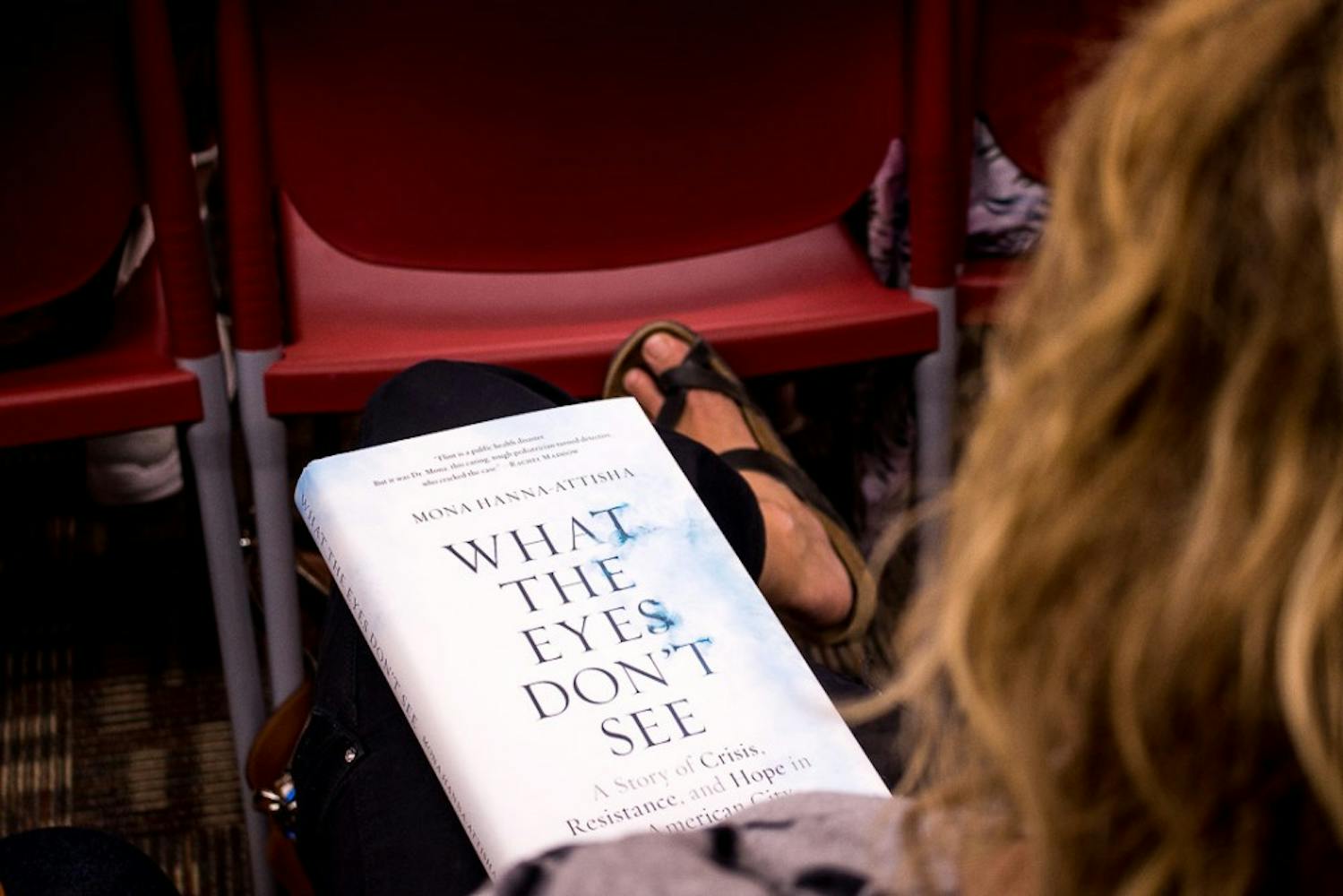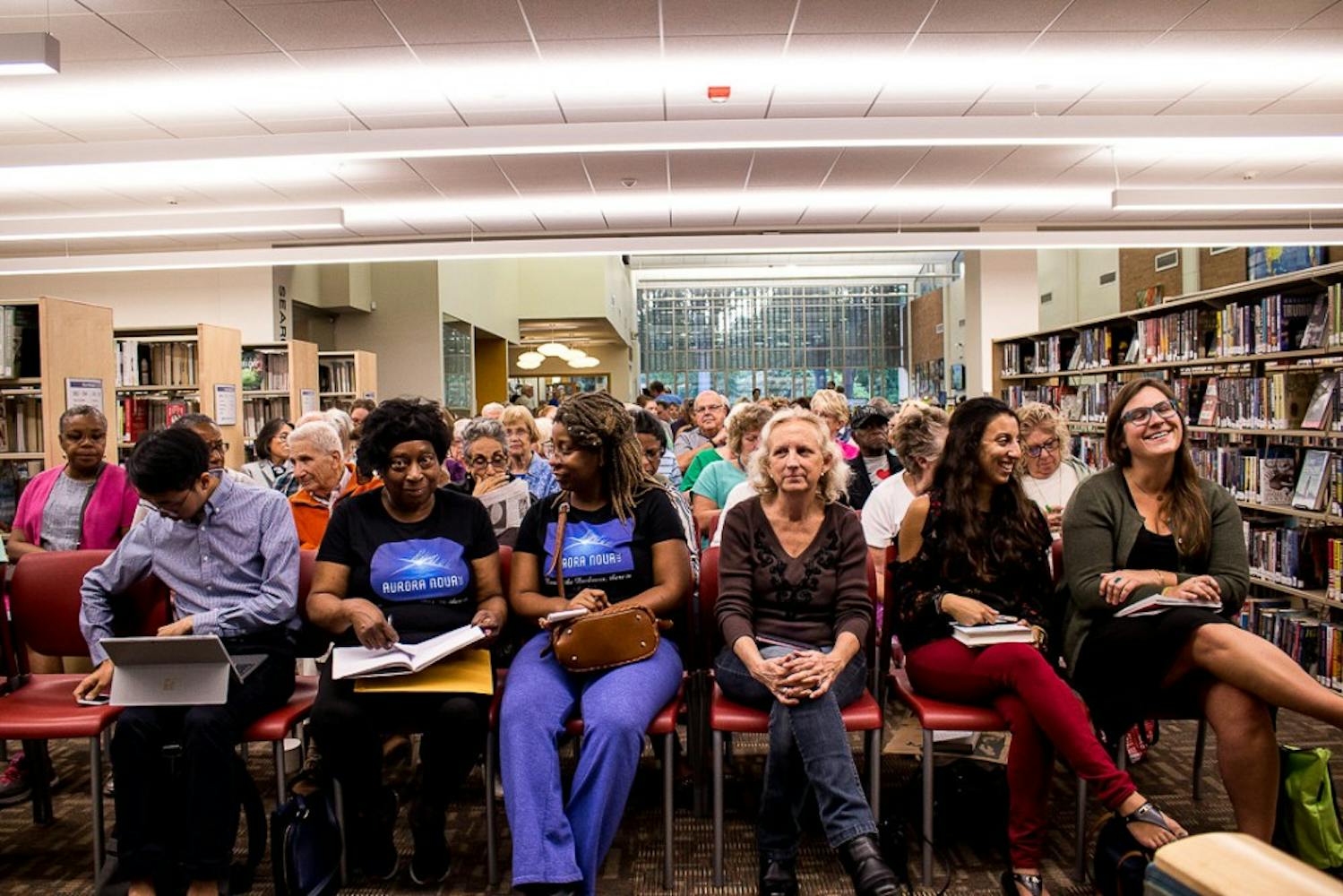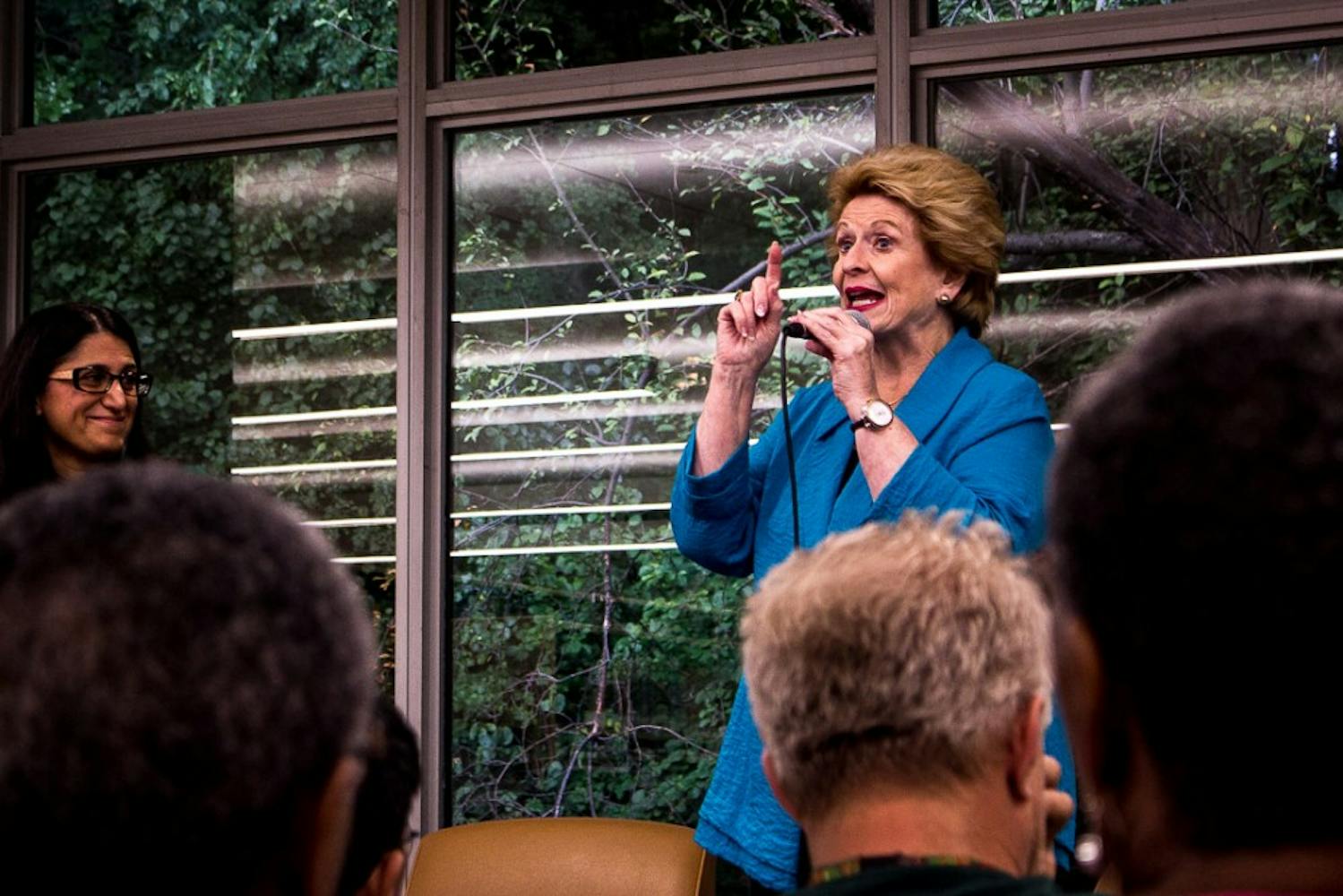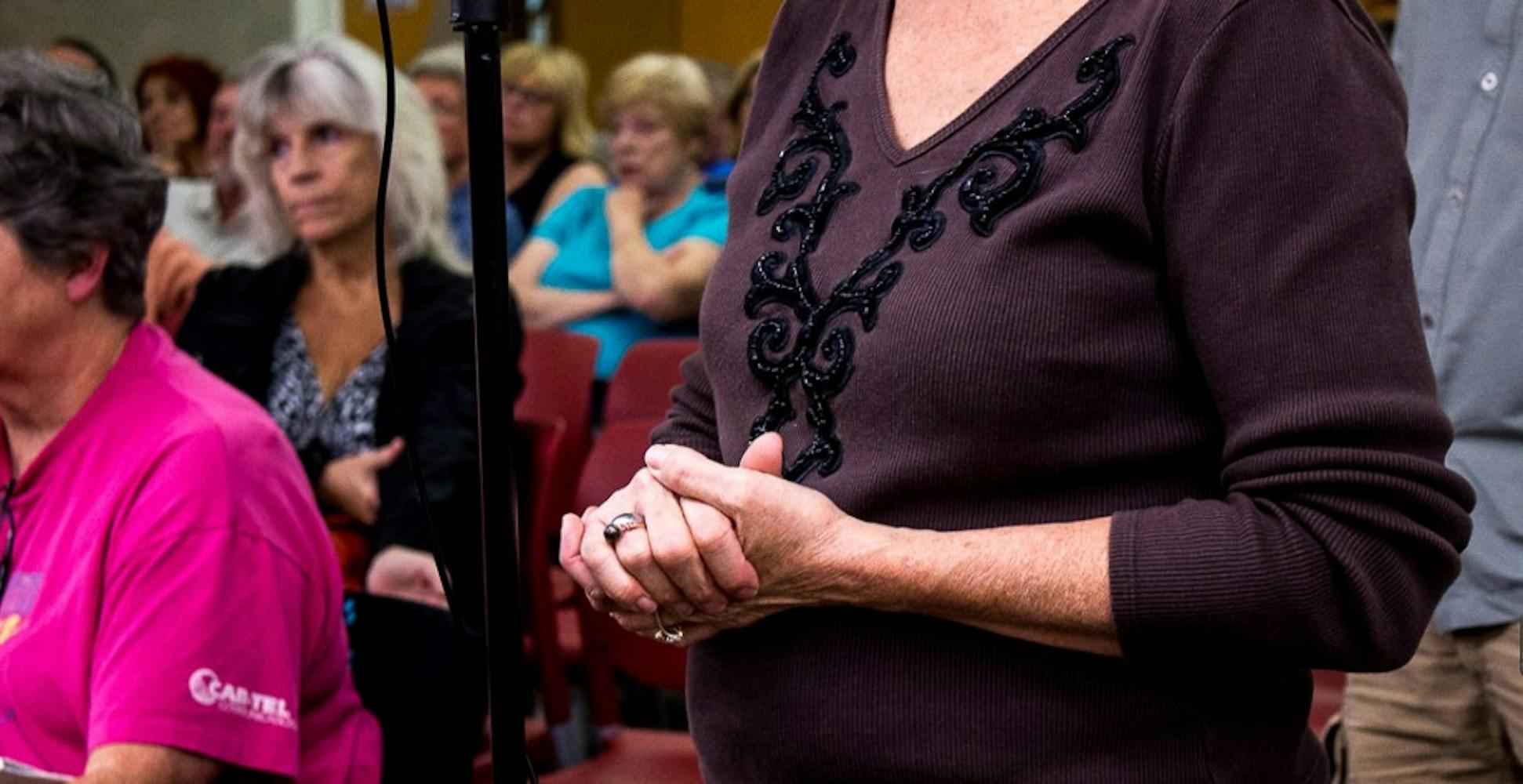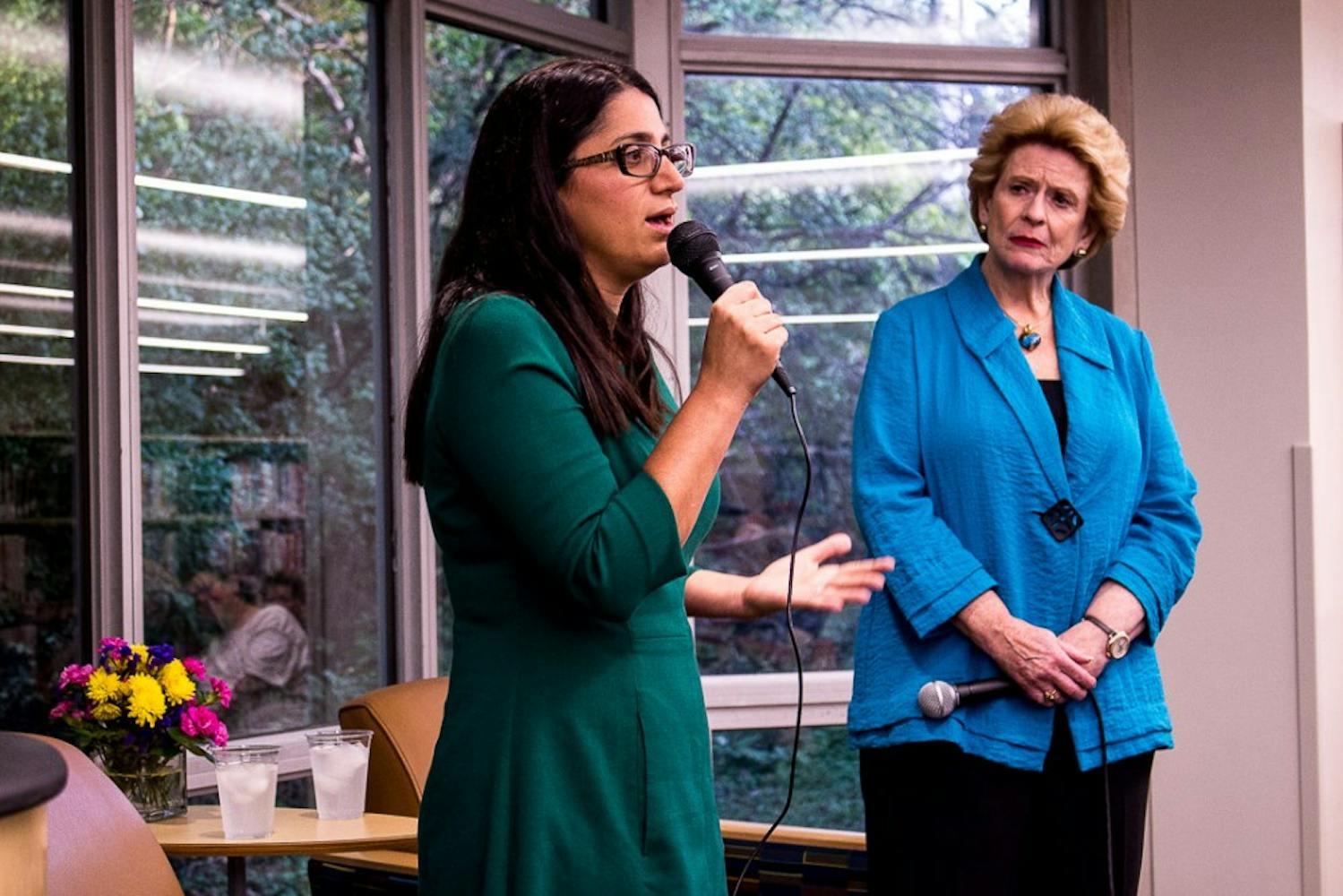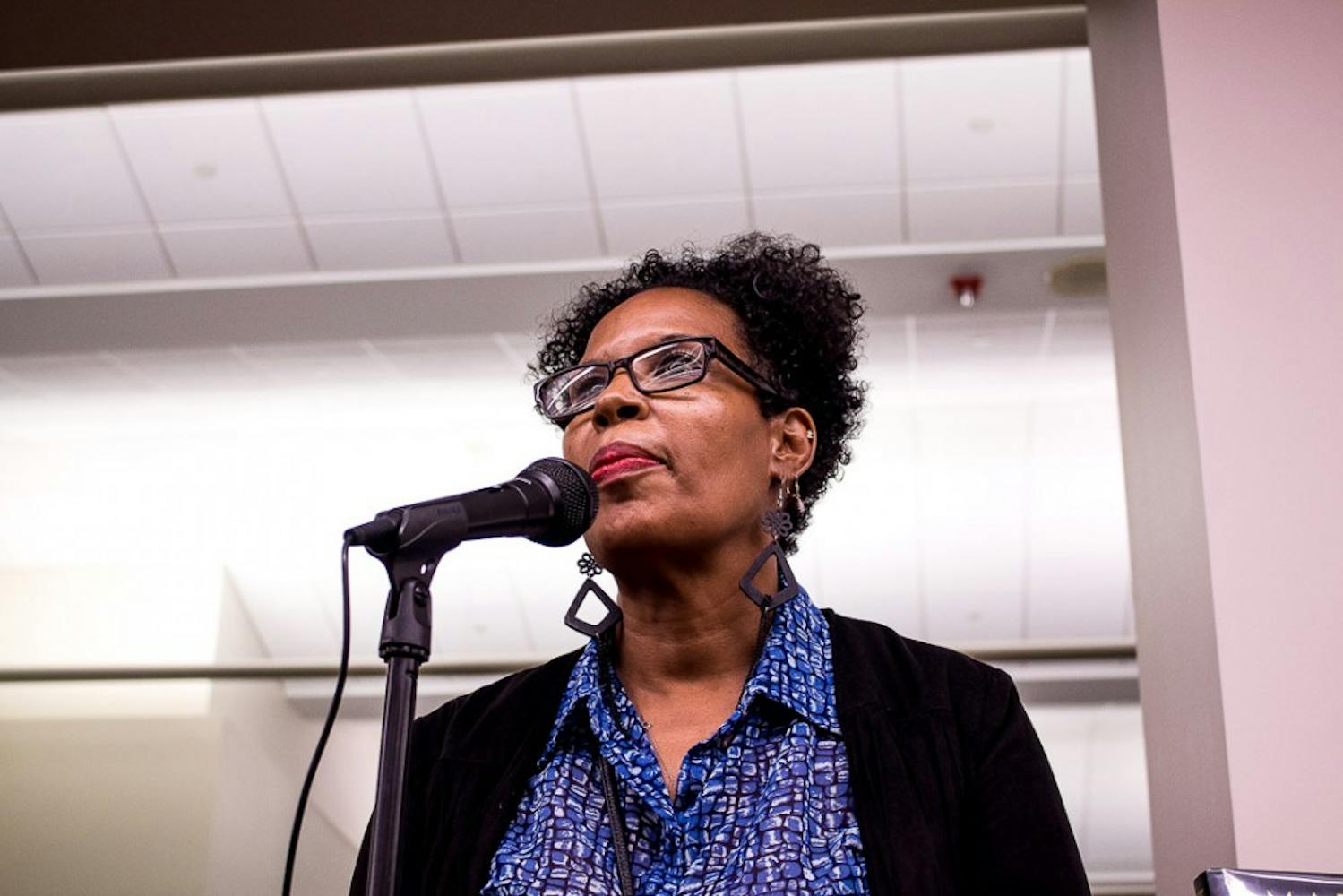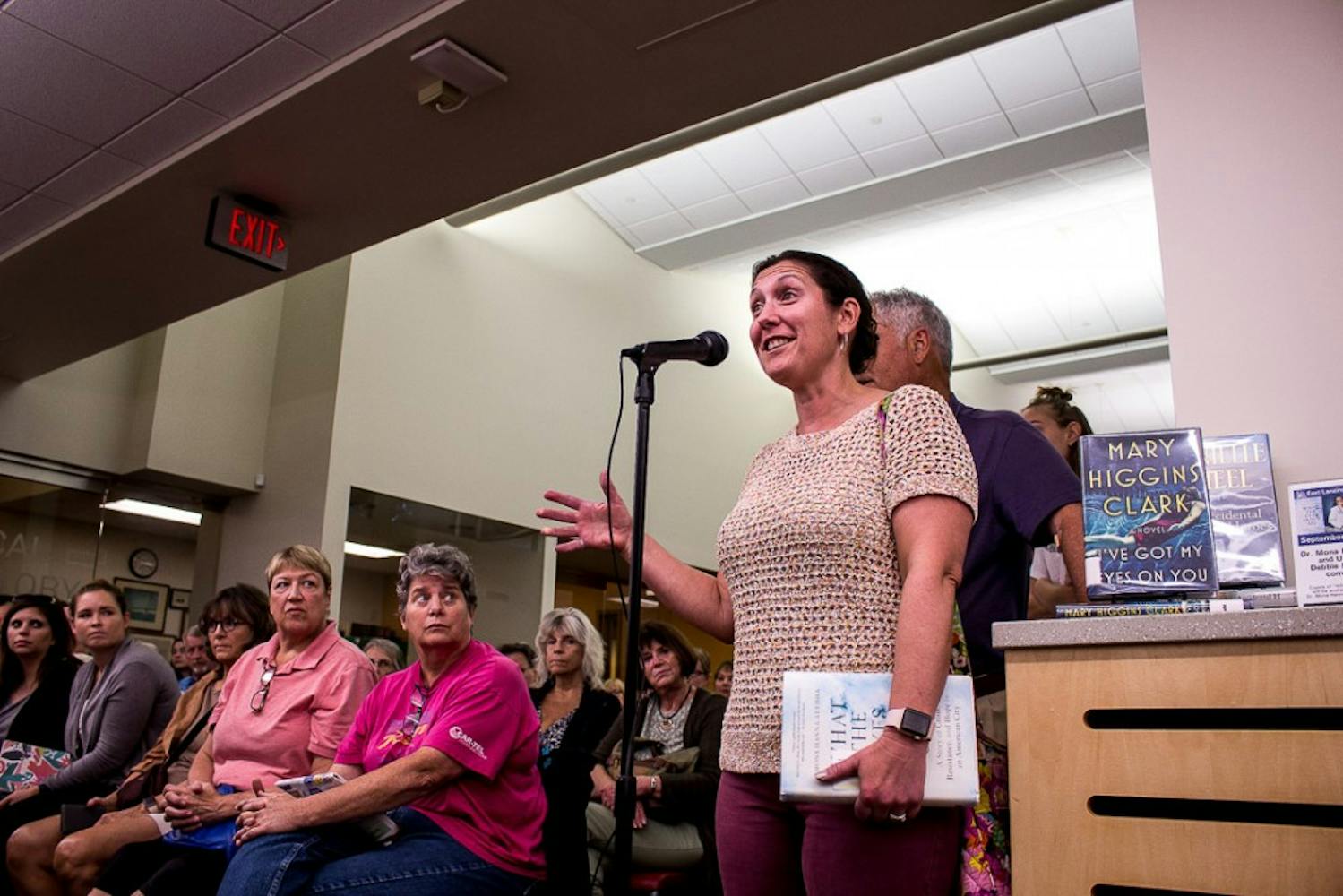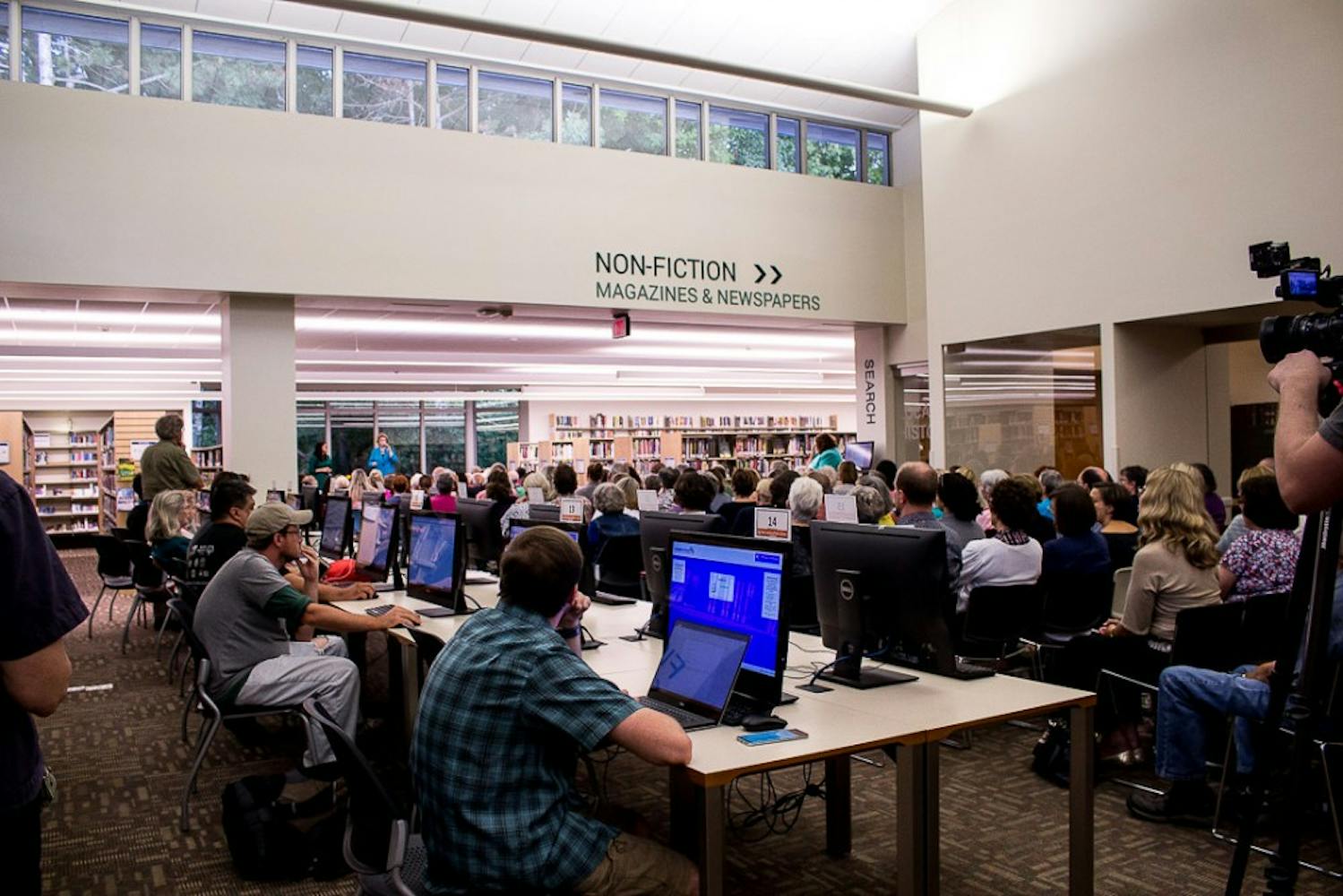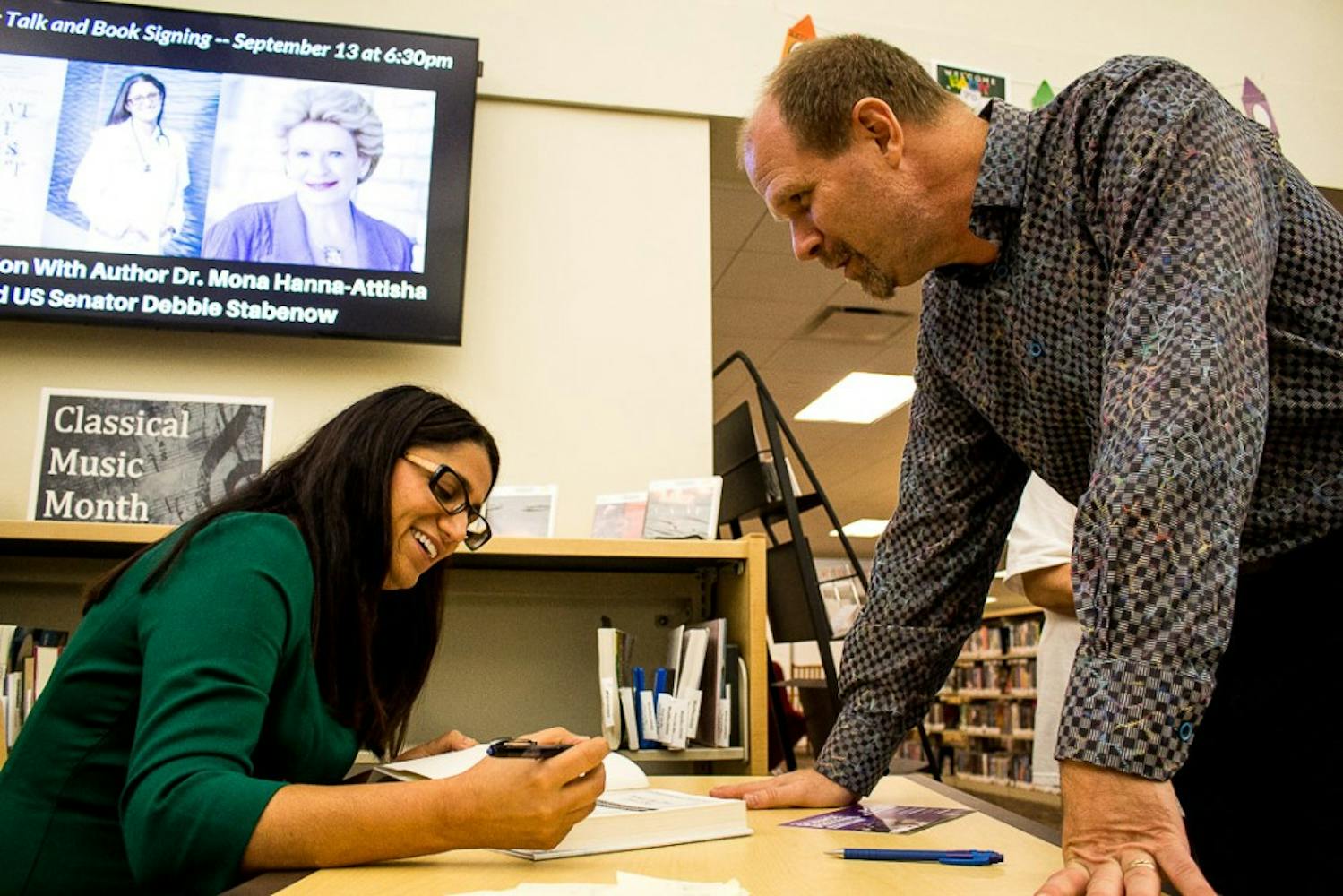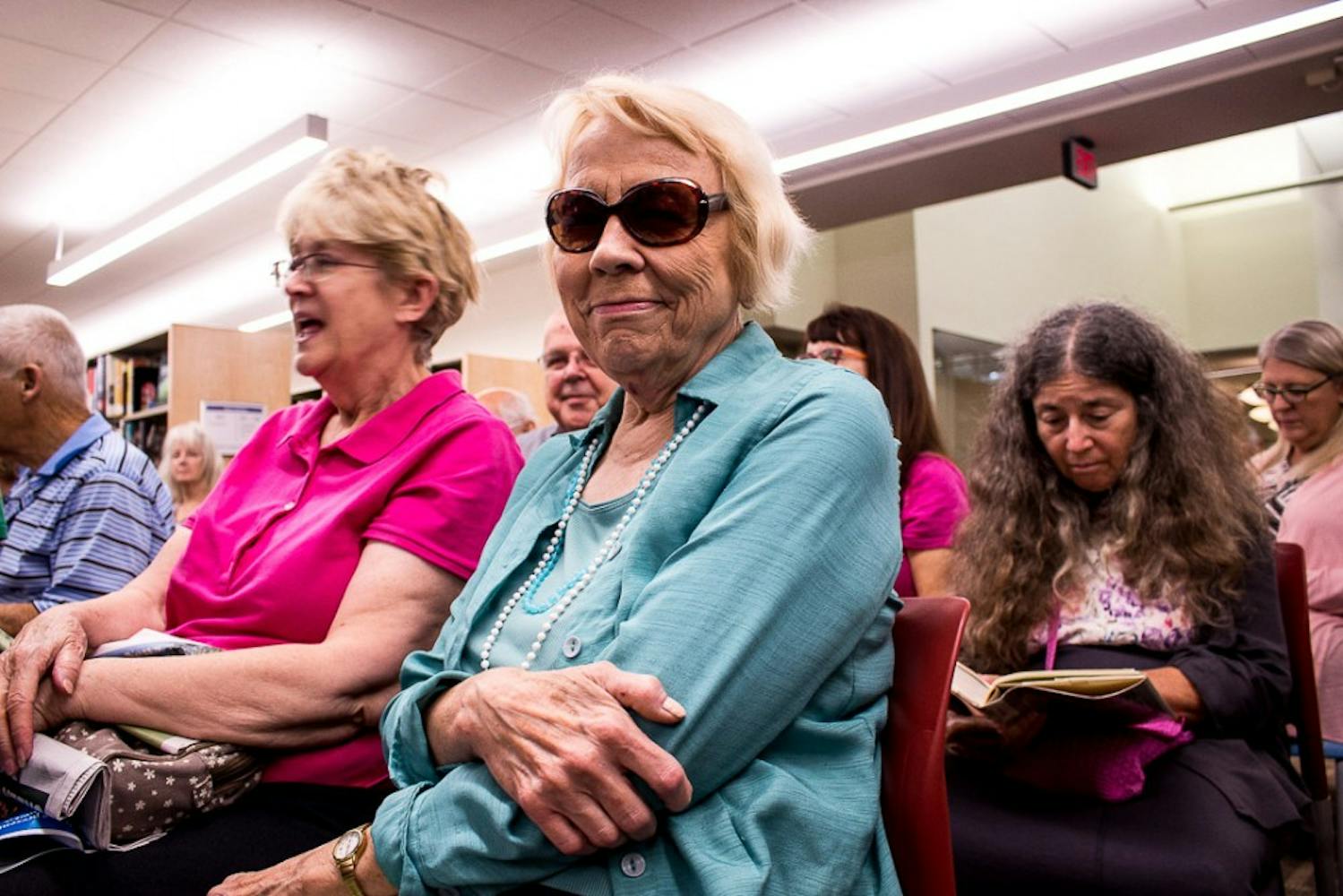Flint’s water crisis is far from over, but residents of the city won’t allow that to hold them back from making other improvements to aid its overall recovery, Dr. Mona Hanna-Attisha and U.S. Sen. Debbie Stabenow (D-Michigan) said during a forum on Thursday at the East Lansing Public Library.
Flint has been the center of a public health crisis since the city switched its water source from the Detroit Water and Sewerage Department to the Flint River in April 2014. Hanna-Attisha, a pediatrician at Hurley Medical Center, released a study in January 2016 indicating that the number of Flint children with elevated lead levels in their blood had doubled — and in some cases tripled — following the switch in water sources, exposing the public to the seriousness of the situation.
Hanna-Attisha’s visit to East Lansing came following the release of her first book, "What the Eyes Don't See: A Story of Crisis, Resistance, and Hope in an American City". The book, released in June 2018, is being adapted for a movie written and directed by Cherien Dabis.
President Barack Obama declared a state of emergency in the city in January 2016. Several members of Governor Rick Snyder’s administration were charged with involuntary manslaughter in June 2017 following an outbreak of Legionnaires’ disease that killed twelve people in connection with the water crisis.
Almost 7,000 lead pipes have been replaced in Flint since March 2016, but there are still thousands more to go. Still, Hanna-Attisha said, the rate at which they are being replaced is impressive.
“Two cities in the country have fully replaced their lead service lines, and it took those cities over a decade. Flint is doing it, and they're going to have it done by 2020,” Hanna-Attisha said. “They'll be only the third city in the country that’s done it, and they’re doing it in less than half the time as those other cities.”
Lansing, one of the two cities that Hanna-Attisha referenced, replaced their final lead service line in December 2016. But lead pipes aren’t the only issue that Flint residents face — as factory jobs have disappeared from the city and the economy has shriveled, even basic nutrition can be a challenge.
As a pediatrician, Hanna-Attisha said she often recommended her patients eat vegetables like avocado and kale, which provide needed nutrients but can be too expensive for families struggling to get by. Her clinic found a way to try and address children's health needs while being mindful of the family's economic situation.
“I would tell my kids, ‘you need to eat more avocados and kale,’ and they’d just stare at me — ‘where the heck am I going to get avocado and kale, and how am I going to pay for this?' ... There are so many environmental, social and economic barriers for our children to succeed," Hanna-Attisha said. "We purposely put our clinic on the second floor of the farmers’ market, and there’s no clinic like it in the country. Every single kid that comes in, be it for an ear infection or a well-being checkup, gets a $15 prescription that they fill downstairs for fruits and veggies.”
Another improvement in the city, Hanna-Attisha said, is a program that aims to increase literacy among Flint children by making sure that they have access to books.
“Early literacy has been a huge part of our recovery. So as a community, we came together and created something called Flint Kids Read,” Hanna-Attisha said. “Now in Flint, every single kid can get a book mailed to them every single month.”
Last week, the U.S. Senate voted unanimously to pass a bill that Stabenow introduced to ban gag clauses from pharmacists’ contracts, which prevent pharmacists from notifying customers if they could pay less for a prescription by paying out of pocket rather than using their insurance. It’s an issue that she says affects areas like Flint disproportionately.
“I think anytime there’s a low-income area, it’s even a greater problem,” Stabenow said. “It’s even worse if somebody comes in and doesn’t have the funds and is trying to figure out some way to be able to pay for medicine. ... The pharmacist wants to help, but if they’re stopped from helping that person it’s even worse.”
The bill was cosponsored by seven Republicans and six Democrats.
“It’s hard to get something through when you’re taking on the pharmaceutical lobby, and this was a situation where it was so egregious that we were able to get people to come together,” Stabenow said.
U.S. Sen. Gary Peters (D-Michigan) said in a statement that he applauds Stabenow’s “leadership and long-running commitment to helping reduce the rising costs of prescription drugs for Michigan families.”
“I’ve heard firsthand from Michigan seniors who are forced to decide between their prescription medication and paying their bills,” Peters said. “Seniors shouldn’t have to skip doses or split pills because they can’t afford a refill when there is a cheaper option available.”
Forum attendee Alexis Warner, who graduated from MSU's James Madison College in 2013 and is now enrolled in the university's Master of Social Work program, said she enjoyed learning about the full scope of the situation in Flint.
“It was an incredible discussion, both learning about not only what happened in Flint at the beginning but years later what’s still happening,” Warner said.
Stabenow said it was important to realize the full story in Flint despite the city's ongoing struggles.
Support student media!
Please consider donating to The State News and help fund the future of journalism.
“Because the pipes aren’t yet fixed, it’s really hard for people to feel the positive part, even though there are things that are helping,” Stabenow said.
Discussion
Share and discuss “Hanna-Attisha, Stabenow talk Flint's recovery at ELPL forum” on social media.

